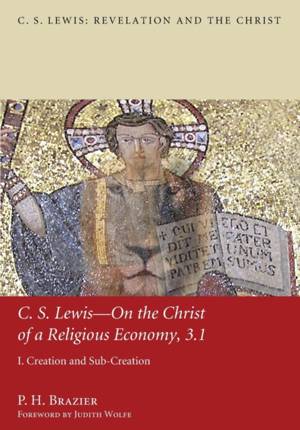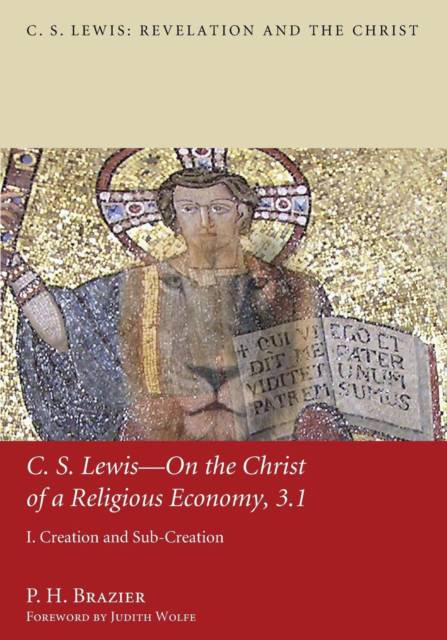
- Retrait gratuit dans votre magasin Club
- 7.000.000 titres dans notre catalogue
- Payer en toute sécurité
- Toujours un magasin près de chez vous
- Retrait gratuit dans votre magasin Club
- 7.000.0000 titres dans notre catalogue
- Payer en toute sécurité
- Toujours un magasin près de chez vous
55,95 €
+ 111 points
Format
Description
C. S. Lewis--On the Christ of a Religious Economy I, Creation and Sub-Creation opens with Lewis on creation, the fall into original sin, and the human condition before God and how such an understanding permeated all his work, post-conversion. For Lewis, Christ, the second person of the Trinity, is the agent of creation and its redeemer. This leads into Lewis's representation through sub-creation: explaining salvation history and the purpose of the creation and the creature through story (The Chronicles of Narnia, The Space Trilogy, Screwtape, etc.), but also the question of multiple incarnations, and the encounters he pens between Aslan-Christ and creatures. What does this tell us about the human predicament and our state after the fall? This volume forms the first part of the third book in a series of studies on the theology of C. S. Lewis titled C. S. Lewis: Revelation and the Christ. The books are written for academics and students, but also, crucially, for those people, ordinary Christians, without a theology degree who enjoy and gain sustenance from reading Lewis's work.
Spécifications
Parties prenantes
- Auteur(s) :
- Editeur:
Contenu
- Nombre de pages :
- 318
- Langue:
- Anglais
- Collection :
- Tome:
- n° 3
Caractéristiques
- EAN:
- 9781610977203
- Date de parution :
- 03-05-13
- Format:
- Livre broché
- Format numérique:
- Trade paperback (VS)
- Dimensions :
- 175 mm x 251 mm
- Poids :
- 566 g

Les avis
Nous publions uniquement les avis qui respectent les conditions requises. Consultez nos conditions pour les avis.






